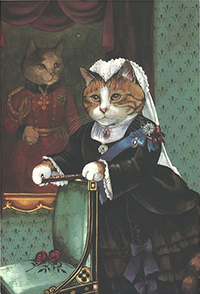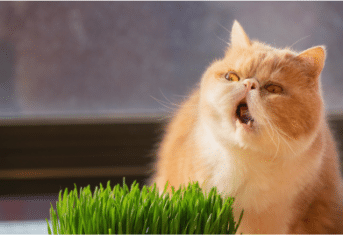Do Cats Faint?

Do Cats Faint?
We ascribe many human characteristics to our pets: the loyal dog and the cunning cat. Pets and people share many of the same diseases, such as leptospirosis and Lyme disease. But what about fainting? In Victorian times, women commonly “swooned” when receiving shocking news or viewing a grotesque injury. Cats could make us swoon by depositing a special “gift” at our feet, but it is not likely cats swoon from extreme emotions like we do. The question then becomes, can cats faint from a medical condition?
What is fainting?
First, I need to define fainting. Another way to describe fainting is “blacking out.” The medical term is syncope or the temporary loss of consciousness followed by a rapid return to full wakefulness. The temporary loss of consciousness may cause falling or collapsing.
What looks like fainting, but is not?
Fainting, to the untrained eye, may look similar to several other medical conditions. For example, a seizure causes loss of consciousness but is a short circuit in the wiring of the brain. Head trauma may cause a loss of consciousness, but that type of injury would be considered a concussion. Vertigo, or severe dizziness, causes falling and collapsing, but not a loss of consciousness. Severe ear infections are a common cause of feline vertigo.
What might cause fainting in cats?
Since the brain requires a large blood supply to function normally, anything disrupting blood flow to the brain can cause fainting. Cats are especially prone to diseases of the heart muscle, resulting in a decreased ability to deliver blood to the brain.
Cats with heart muscle disease often have abnormal heart rhythms and both conditions decrease blood flow to the brain and thus can cause fainting. A decrease in the amount of blood in the blood stream will decrease blood flow to the brain, so both anemia and dehydration can cause fainting in cats. Coughing and straining (to urinate or defecate), two conditions not obviously related, can both cause fainting in cats via the “swooning” mechanism. Swooning occurred because extreme emotions activated a very important nerve, the vagus nerve. Stimulation of the vagus nerve slowed heart rate and dilated blood vessels inducing a fainting episode. Coughing and straining also stimulate the same nerve, and feline swooning often accompanies a coughing fit or a trip to the litter box.
Even though you swoon over your cat, your cat is not likely to swoon back unless they have a medical condition.

































